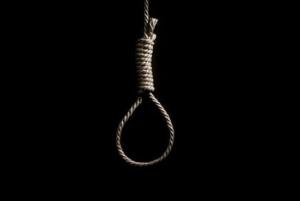Ghana marks World Day against Death Penalty
 Mrs Marietta Brew Appiah-Oppong, Minister of Justice and Attorney-General, says government had accepted the report of the Constitutional Review Commission to abolish the death penalty from the country’s laws.
Mrs Marietta Brew Appiah-Oppong, Minister of Justice and Attorney-General, says government had accepted the report of the Constitutional Review Commission to abolish the death penalty from the country’s laws.
She said on June 15, 2012 government published a white paper accepting the report and turned death punishment to life imprisonment and a bill to that effect is awaiting gazetting after which a referendum would be conducted on the issue.
Speaking at the 14th World Day Against Death Penalty in Accra, she said although Ghana has made a defacto moratorium on death penalty since 1993, after the firing squad execution, it is yet to abolish it from its laws.
The day was organised by the French Embassy in collaboration with Amnesty International, Ghana.
Mrs Appiah-Oppong explained that the law on death penalty as enshrined in the 1992 Constitution is entrenched and could only be amended through referendum.
“That Chapter by itself is entrenched and to amend it you need a referendum. The Drafters of the Constitution did it so to make it impossible for people to temper with it,” she added.
Mr Francois Pujolas, French Ambassador, said the day also coincided with the 25thanniversary of abolishing of death penalty in France.
He said annually his country organises the session to discuss abolishing in Ghana and that universal elimination is a great concern for France.
Mr Pujolas said so far 123 countries have abolished the death penalty from their books; 58 countries and territories are retentionist; 30 countries are abolitionist in practice, 65 countries and territories retain the death penalty for terrorism.
He said despite the victory and hopes they must continue to advocate until they achieve total abolishing and urged civil society organisations, governments and the development partners to collaborate to achieve the necessary result.
Mr William Hanna, Head of Delegation of the European Union (EU) to Ghana, also reiterated the need for the intensification of efforts to achieve the goal.
He commended Ghana for moving forward in other areas of human rights and pledged the EU’s commitment to continue to discuss with the country to see where it could collaborate.
Professor Emmanuel Victor Dankwah, Chairman of the Constitutional Review Commission, said referendum processes are expensive and if care is not taken and the people are not well informed they would vote against the motion.
He, therefore, called on all partners to intensify their public education and advocacy to inform the public well in advance to achieve success.
The five top executioners in 2015 were United States, China, Iran, Saudi Arabia, and Pakistan.
In the last 10 years, Bangladesh, India, Nigeria, Tunisia and others have adopted laws that expanded the scope of the death penalty, adding certain terrorist acts to the list of crimes punishable by death.
More recently, Pakistan and Chad resumed executions in the name of the fight against terrorism, putting an end to moratoriums that had lasted for years.
Source: GNA
